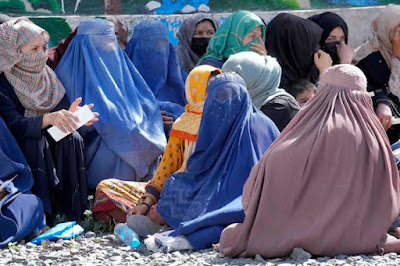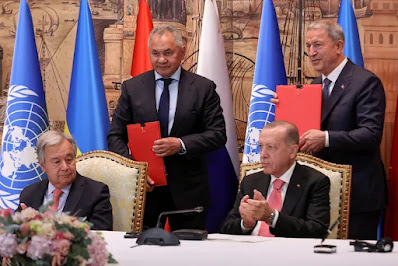It is not about fooling myself and my fellow Egyptians into unrealistic optimism. It is about believing that there are always hidden opportunities in every crisis. One of these opportunities could be accelerating the process of establishing a modern macroeconomic system in place of the old and barren structure that kept the Egyptian economy struggling for seven decades. The success of the economic reform plan led by President El-Sisi, between 2016-2020, should make us optimistic about Egypt’s potential in that regard.
Since the beginning of the Russian invasion of Ukraine, in February, the Egyptian economy has been weathering significant pressures, blowing away the hard-earned gains of the national economic reform program that the government launched seven years ago. As the year comes to an end, the pain of the economic crisis is deeply felt by Egyptian citizens from all social and professional backgrounds. The wealthy, the poor, and the middle class are struggling, with variant degrees and for distinct reasons, to cope with the spiking inflation rates and dollar scarcity.
Over the year, the hot money investors withdrew from the Egyptian market causing a sharp decline in foreign investment rates. As a result, the dollar reserves in the Central Bank of Egypt (CBE) started to deplete, especially that the tourism sector, too, has become unable to generate appropriate revenues because of the sharp fall in Russian and Eastern European tourist turnout.
By the end of the year, between the end of November and early December, the dollar scarcity issue got more complicated as more people started to purchase dollars to hedge against inflation. In December, the CBE announced that official inflation rates reached slightly over 21%, adding huge pressure on the purchasing power of the Egyptian Pound. In the unofficial market, the dollar exchange rates spiked to 32-40 EGP compared to 24-25 in the banks supervised by CBE.
Nevertheless, the government is careful to keep the basic commodities, such as food and energy products, abundantly available in local markets. Since the beginning of the crisis in March, the Egyptian government has been exerting a huge effort to keep food products, especially bread and oil, available to most consumers at affordable prices. In the process, the government had to postpone its plans to remove the subsidies on bread, fuel consumption, and electricity subscriptions until the current crisis is resolved.
However, many citizens are unable to benefit from this governmental support because merchants manipulate prices to cover up their losses. Most merchants and manufacturers have been struggling to cope with the restrictive policies imposed by CBE on importation. One of these restrictions complicates the procedures of releasing imported products at Egyptian ports, either by requesting additional documents or by banning the importation of certain products. The CBE’s main goal in applying such restrictions is to keep the dollar reserves for the longest period possible and encourage consumers to buy local products to strengthen the Egyptian pound.
Unfortunately, the premature restrictions backfired by pushing merchants and manufacturers to get the dollars they need from the parallel market and thus increasing the exchange rate of the dollar and further depreciating the Egyptian pound. The CBE promised that these restrictions will be gradually removed over the coming few months thanks to the release of the long-awaited loan from the International Monetary Fund (IMF). In mid-December, the IMF Executive Board approved the release of $3 billion over 48 months for Egypt. The amount is like a drop in the sea when compared to Egypt’s needs; it hardly covers Egypt’s annual budget for grain importation. In addition, the loan is tied with a number of provisions seeking to liberate the Egyptian market from the grip of the state and allow greater flexibility to the Egyptian pound against the dollar.
Last week, the CBE’s Policy Committee decided in its last routine meeting of 2022 to raise the interest rate by 3% to control inflation and strengthen the Egyptian pound before allowing it to float per IMF instructions. Since March, the CBE gradually raised the interest by 8%. This policy succeeded in attracting massive investments from Egyptians, local and living abroad, in the high-profit Egyptian pound certificates at Egyptian banks. In the medium term, this policy seems to be able to control the inflation rates and bring the exchange rates to a reasonable range. However, until this happens, the government still needs to take other procedures to protect the citizens from the manipulations of the merchants.
Based on our former experience with the current political leadership in managing the previous economic crisis of 2016, I am optimistic that the Egyptian economy will survive the current crisis, too. That is even more possible thanks to the generous deposits and investments by the Arab Gulf countries and the continued support of the IMF.
Despite the painful pressures on the daily spending power of most Egyptian citizens, there are some promising indicators on the state / governmental level. For example, Egypt’s GDP has grown by 4.4% at the end of 2022 compared to the 3.3% growth rate in 2021. Egypt's non-oil exports rose during the period extending from January to October by about 12% to reach $30.4 billion compared to $27.1 billion during a similar period last year. Meanwhile, the government has not given up on its mega national projects targeting to improve the infrastructure and protect the poor.
That being said, we have to keep in mind that all the efforts exerted by the government to contain the current economic crisis are only going to provide a temporary fix to a chronic disease that has been dragging Egypt since the 1950s. In that sense, the question that the Egyptian government, and its regional and international supporters, should consider is: how to avoid the crisis after the current crisis. Or, even better to ask: how to get the Egyptian economy liberated from the painful roller coaster of extreme stress followed by a short recovery that has not stopped for seventy years.











